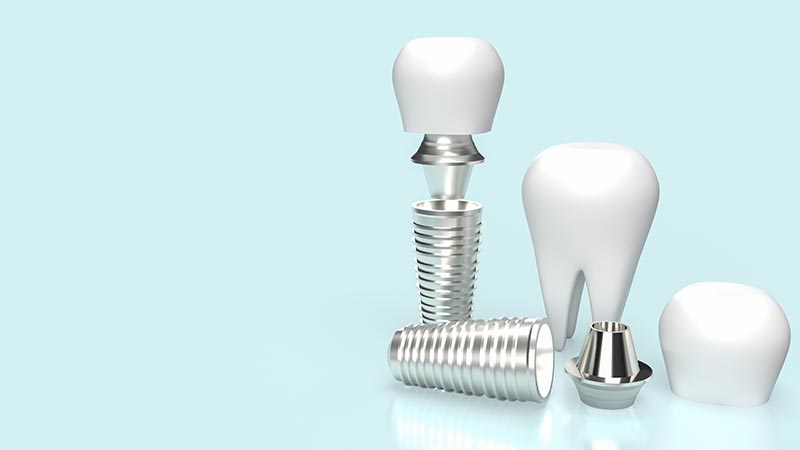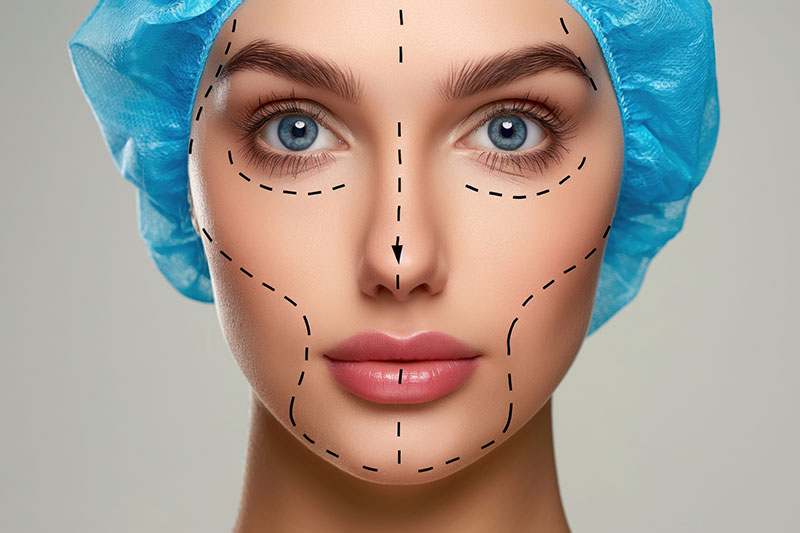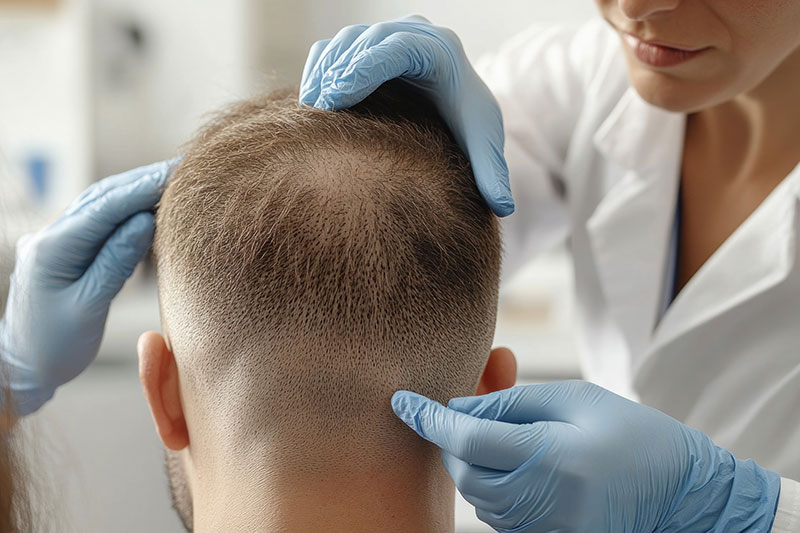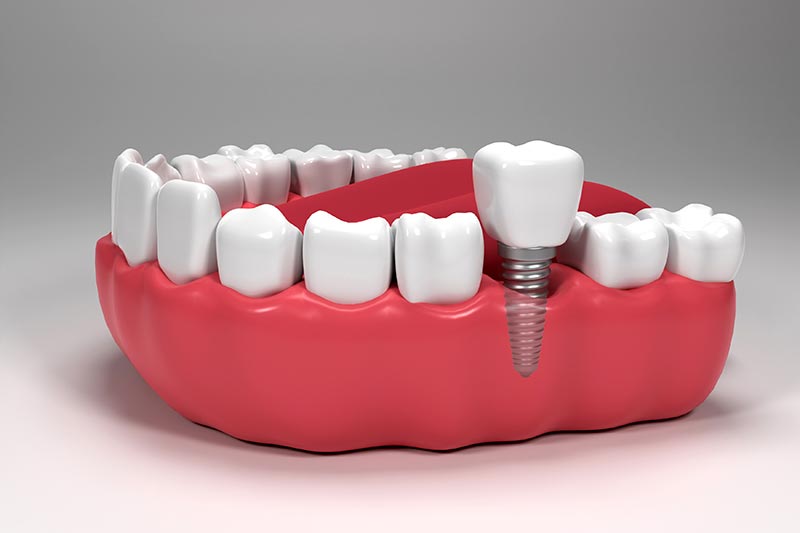Prologue: Importance of eye health
Eye health plays a vital role in overall health and quality of life. With our eyes we can perceive our environment and carry out our daily activities efficiently. Good eye health is important for:
Clear vision: It is necessary to see the details clearly.
Safe Driving: Provides safe driving behavior in traffic
Academic success: Increases learning and reading success
Sports and activity performance: Increases competence in physical activities
Eye diseases and vision problems can have serious consequences if they are not diagnosed early. Regular eye checks therefore make it possible to take preventative measures before problems occur.
Ophthalmology services in Side: overview
Ophthalmology services in Side provide comprehensive solutions to patient needs. The services include:
Eye examinations: Detection of eye diseases and routine controls
Optical examinations: Analysis of visual disorders and preparation of prescriptions
Surgical interventions: Various operations such as cataracts and glaucoma
Optometry services: Issuing prescriptions for glasses and contact lenses
Eye rehabilitation: Treatments after eye injuries
Patients have the opportunity to receive professional advice from licensed and experienced professionals. By using the latest technologies, we offer the most modern and reliable treatment methods.
When is an eye health examination necessary?
Regular examination is important to maintain eye health. In the following cases, an ophthalmologist should be consulted:
Annual checks: from the age of 40, every year
Family health history: Frequent examination if there is a history of glaucoma or cataracts
Visual difficulties: with blurred vision, double vision
Headache: if you have regular or severe headaches
Dry eye: dry eyes over a longer period of time
Eye injuries: after any kind of eye injury
Diabetes: regular check-ups for diabetes patients
Routine check-ups offer the opportunity to detect eye problems early. This prevents future health problems.
Types and procedures of eye examination
An eye exam consists of a series of tests and examinations performed to assess eye health and detect possible eye problems. These examinations are carried out in various forms:
- Simple eye examination
- Visual acuity test
- Assessment of the eye muscles
- Pupillary reaction test
- Comprehensive eye examination
- Refraction measurements
- Evaluation of the retina and optic nerve
- Eye pressure measurement
- Special examinations
- Topography of the cornea
- Testing the visual field
- Testing of color vision
An appointment should be made with an ophthalmologist for an eye examination and a treatment or prescription for glasses should be made based on the examination results.
The process for getting a prescription for glasses
To obtain a prescription for glasses, the following steps should be followed:
- Make an appointment:
- The first step is to make an appointment with an ophthalmologist
- Eye examination:
- The doctor checks your vision and the health of your eye
- Issuing a prescription:
- At the end of the examination, a prescription with the correct visual acuity will be issued
- Visit the optician:
- With the prescription you go to an authorized optician
- Auswahl der Brille
- Im Optikfachgeschäft ist man bei der Wahl des Brillengestells oder bei der Auswahl der Gläser behilflich.
- Bestellung und Abmessungen:
- Es werden die entsprechenden Abmessungen gemacht und die Brille bestellt.
These processes are crucial for producing glasses that provide accurate and clear vision.
Choosing the right glasses
The choice of the right glasses should suit the facial structure, the glasses diopter and the lifestyle of the person. The following steps make choosing glasses easier:
- A glasses frame that fits your face shape: Choosing a frame that suits the shape of your face is important. Almost all frames are suitable for oval face shapes, while square frames are preferable for round faces.
- Glasses diopter: For high diopter values, thicker and supportive frames are recommended.
- Selection depending on the purpose: Athletes should choose more flexible and durable frames, office workers should choose more elegant and professional frames.
- Material selection: Depending on the frequency of use and comfort, choose between materials such as metal, plastic or titanium.
- Color and style: The color and style of the glasses should match the wearer’s personal preferences and wardrobe.
Choosing the lens and frame: What should you pay attention to?
The choice of lenses and frames directly affects a person’s visual comfort and aesthetic appearance. There are some important points to consider:
Choice of lens:
Lens type: preferences for distance, near, progressive or photochromic lenses
Coating: Anti-reflective, scratch-resistant or UV-protected coating
Material: Auswahl von Plastik, Polycarbonat oder Glaslinsen
Choice of version:
Face shape: suitable frames for square, round, oval or heart-shaped faces
Material: Metal, plastic or durable and lightweight titanium
Color and design: selection that suits your personal style and lifestyle
Advice from an optician can make it easier to choose glasses.
Care and cleaning of glasses: Tips for long-lasting use
Cleaning and caring for glasses is very important to ensure they last a long time. Here’s what you need to look out for to protect your glasses:
Use of microfiber cloths: Prevents the glasses from being scratched when cleaning.
Water and soap: The most effective way to clean your glasses is with soap and water
Avoid chemicals: Cleaning agents that contain alcohol or ammonia damage the glasses.
Store in glasses case: When you are not using your glasses, protect them in a glasses case.
Regular check-ups: Have the screwed parts checked regularly to ensure that they do not come loose.
Protect eye health: Things you should keep in mind in everyday life
In order to protect your eye health, you should take a few measures into account:
Screen usage:
Avoid looking at computer or phone screens for long periods of time.
Every 20 minutes, look at an object 20 feet away for 20 seconds
Eye hygiene:
Regular cleaning of the eyes is important
Avoid touching your eyes with dirty fingers
Nutrition:
Support your eye health with a diet rich in omega-3 fatty acids and vitamin C
Drink enough water
Sun protection:
Use glasses with UV protection
In direct sunlight, make sure that you do not stay outside for long periods of time.
Regular check-ups:
For early diagnosis of eye diseases, routine eye examinations should not be neglected.
Frequently Asked Questions and Answers
- How long does an eye examination take?
An eye examination takes about 30 – 45 minutes
- How to make an appointment?
Either you visit the website and book an appointment online or you call us directly at the clinic.
- Which insurance applies?
The state insurance applies as well as a number of private insurances. For detailed information, ask your insurance provider.
- How can we help you choose frames and lenses?
Experienced opticians and ophthalmologists help select the most suitable frames and lenses for each patient’s needs.
- How long is the warranty on optical glasses?
Normally there is a one year guarantee.
Conclusion and Recommendations: Step-by-Step Guide for Your Eye Health in Side
- Regular eye examinations: For early diagnosis, it is important to have an eye examination every six months.
- Selection of high-quality optical glasses: Glasses from reliable opticians are crucial for long-term eye health
- Use of blue light filters: To prevent harmful rays from digital screens, glasses with blue light filters should be preferred.
- Daily eye hygiene: Keeping your eyes clean reduces the risk of infection.
- Eye relaxation exercises: After intensive screen use, exercises should be performed to relieve eye fatigue.












